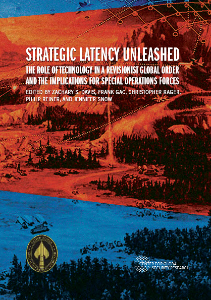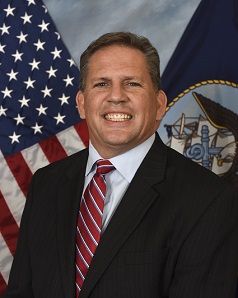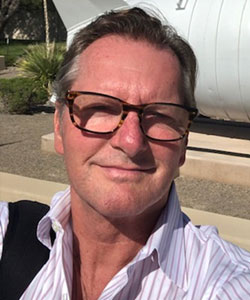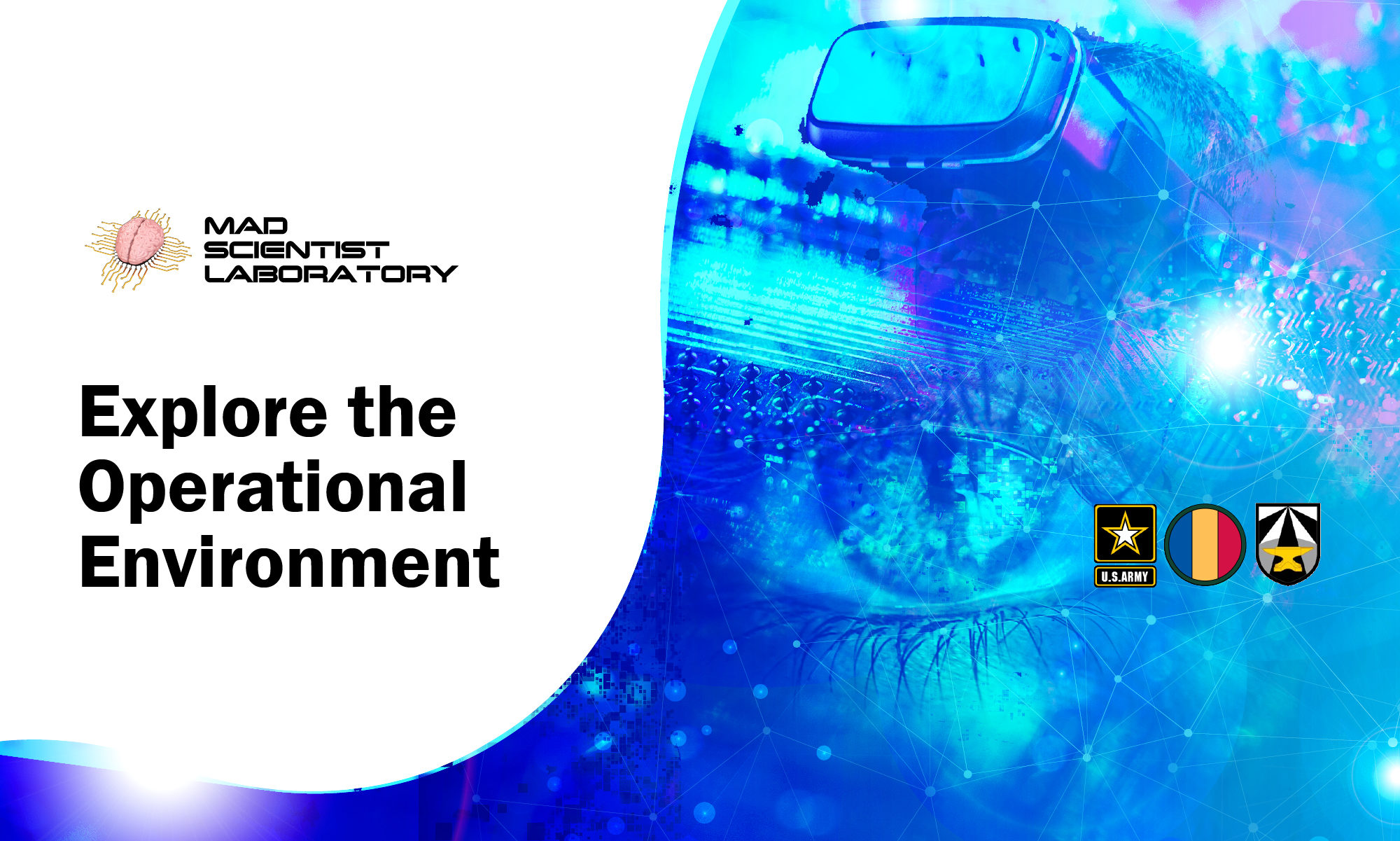[Editor’s Note: Mad Scientist is pleased to announce our latest episode of The Convergence podcast, featuring the Undersecretary of the Navy (and proclaimed Mad Scientist) James F. “Hondo” Geurts and Dr. Zachary S. Davis, Senior Fellow, Center for Global Security Research, Lawrence Livermore National Laboratory, discussing Strategic Latency Unleashed: The Role of Technology in a Revisionist Global Order and the Implications for Special Operations Force and how to think radically about the future, capitalize on talent, and unleash technological convergences to out-compete our adversaries, and when necessary, defeat them decisively in conflict — Enjoy! (Please note that this podcast and several of the embedded links below are best accessed via a non-DoD network due to network priorities for teleworking)]
Strategic Latency Unleashed: The Role of Technology in a Revisionist Global Order and the Implications for Special Operations Force and how to think radically about the future, capitalize on talent, and unleash technological convergences to out-compete our adversaries, and when necessary, defeat them decisively in conflict — Enjoy! (Please note that this podcast and several of the embedded links below are best accessed via a non-DoD network due to network priorities for teleworking)]
[If the podcast dashboard is not rendering correctly for you, please click here to listen to the podcast]
 James F. “Hondo” Geurts was designated as performing the duties of the Under Secretary of the Navy, effective February 4, 2021. In this position, he serves as the deputy and principal assistant to the Secretary of the Navy, as well as the Chief Operating Officer and Chief Management Officer for the Department of the Navy. Additionally, he oversees intelligence activities, intelligence-related activities, special access programs, critical infrastructure, and sensitive activities within the department. Secretary Geurts previously served as Assistant Secretary of the Navy for Research, Development & Acquisition (ASN (RD&A)), from December 2017 to January 2021, and as the U.S. Special Operations Command (USSOCOM) Acquisition Executive, at MacDill Air Force Base (AFB), Florida, where he was responsible for all special operations forces acquisition, technology and logistics. He has over 30 years of extensive Joint acquisition experience and served in all levels of acquisition leadership positions including Acquisition Executive, Program Executive Officer, and Program Manager of Major Defense Acquisition Programs. Secretary Geurts penned the Foreword to Strategic Latency Unleashed: The Role of Technology in a Revisionist Global Order and the Implications for Special Operations Force.
James F. “Hondo” Geurts was designated as performing the duties of the Under Secretary of the Navy, effective February 4, 2021. In this position, he serves as the deputy and principal assistant to the Secretary of the Navy, as well as the Chief Operating Officer and Chief Management Officer for the Department of the Navy. Additionally, he oversees intelligence activities, intelligence-related activities, special access programs, critical infrastructure, and sensitive activities within the department. Secretary Geurts previously served as Assistant Secretary of the Navy for Research, Development & Acquisition (ASN (RD&A)), from December 2017 to January 2021, and as the U.S. Special Operations Command (USSOCOM) Acquisition Executive, at MacDill Air Force Base (AFB), Florida, where he was responsible for all special operations forces acquisition, technology and logistics. He has over 30 years of extensive Joint acquisition experience and served in all levels of acquisition leadership positions including Acquisition Executive, Program Executive Officer, and Program Manager of Major Defense Acquisition Programs. Secretary Geurts penned the Foreword to Strategic Latency Unleashed: The Role of Technology in a Revisionist Global Order and the Implications for Special Operations Force.
 Dr. Zachary S. Davis is a senior fellow at the Center for Global Security Research at Lawrence Livermore National Laboratory and a research professor at the Naval Postgraduate School in Monterey, California, where he teaches courses on counterproliferation. He has broad experience in intelligence and national security policy and has held senior positions in the executive and legislative branches of the U.S. Government. Dr. Davis began his career at the Congressional Research Service at the Library of Congress and has served with the State Department, congressional committees, and the National Security Council. Dr. Davis was group leader for proliferation networks in Lawrence Livermore National Laboratory’s Z Program and in 2007 was senior advisor at the National Counterproliferation Center in the Office of the Director of National Intelligence. He leads the project addressing the national security implications of advanced technologies, focusing on special operations forces; authored the Introduction to Strategic Latency Unleashed: The Role of Technology in a Revisionist Global Order and the Implications for Special Operations Force; and co-edited said document.
Dr. Zachary S. Davis is a senior fellow at the Center for Global Security Research at Lawrence Livermore National Laboratory and a research professor at the Naval Postgraduate School in Monterey, California, where he teaches courses on counterproliferation. He has broad experience in intelligence and national security policy and has held senior positions in the executive and legislative branches of the U.S. Government. Dr. Davis began his career at the Congressional Research Service at the Library of Congress and has served with the State Department, congressional committees, and the National Security Council. Dr. Davis was group leader for proliferation networks in Lawrence Livermore National Laboratory’s Z Program and in 2007 was senior advisor at the National Counterproliferation Center in the Office of the Director of National Intelligence. He leads the project addressing the national security implications of advanced technologies, focusing on special operations forces; authored the Introduction to Strategic Latency Unleashed: The Role of Technology in a Revisionist Global Order and the Implications for Special Operations Force; and co-edited said document.
In today’s podcast, the Undersecretary of the Navy James F. “Hondo” Geurts and Dr. Zachary S. Davis discuss Strategic Latency Unleashed: The Role of Technology in a Revisionist Global Order and the Implications for Special Operations Force and how to think radically about the future, capitalize on talent, and unleash technological convergences to out-compete and defeat our adversaries. The following bullet points highlight key insights from our interview with them:
-
-
- The U.S. Army should identify emerging technologies with “strategic latency,” or technologies that will change the balance of power once fully developed and deployed. While many technologies could fit this description alone (i.e., biotechnology, artificial intelligence, additive manufacturing, cyber), convergences could also emerge between them that multiply their impact.
-
-
-
- Novel applications of technology by creative operators will amplify the disruption caused by technology with strategic latency. Thus, identifying operators with diverse experiences and teaming them with technologists will enable better technology development, and will be essential to solving complex security problems.
-
-
-
- Attracting, connecting, and leveraging divergent perspectives will be critical to successful and rapid technological development. Creating flexible platforms where these perspectives can engage safely and creatively will be essential to solving non-linear problems.
-
-
-
- Creating strategic relationships among U.S. talent before they are needed will facilitate the development of multiple possible solutions for each technological problem encountered.
-
-
-
- The U.S. Army needs to adopt an abundance mindset. While budgetary constraints are present and persistent, the United States has an abundance of disruptive thinkers both inside and outside of the security sphere that can be accessed and leveraged to solve complex problems.
-

Stay tuned to the Mad Scientist Laboratory for our next episode of “The Convergence,” featuring our interview with proclaimed Mad Scientist Mr. Richard G. Kidd IV, Deputy Assistant Secretary of Defense for Environment and Energy Resilience at United States Department of Defense, addressing the climate change resiliency challenges and opportunities facing the DoD, and the U.S. Army in particular.
If you enjoyed this post, check out the following:
Strategic Latency Unleashed! by Dr. Zachary S. Davis
The Convergence: Innovating Innovation with Molly Cain and associated podcast
Estimation of Technological Convergence by 2035, and the associated final report and briefing slides, by Lt Col Nicholas Delcour (USAF), Lt Col Louis Duncan (USAF), Mr. Stephen Frahm (DOS), CDR Patrick Lancaster (USN), and Lt Col Lance Vann (USAF), collectively known as the Army War College’s Mad Scientist Fellows of 2020, under the direction of Prof. Kristan Wheaton, U.S. Army War College
Dense Urban Hackathon – Virtual Innovation
The Convergence: The Future of Talent and Soldiers with MAJ Delaney Brown, CPT Jay Long, and 1LT Richard Kuzma, and associated podcast
Innovation Isn’t Enough: How Creativity Enables Disruptive Strategic Thinking, by Heather Venable
The Convergence: Changing Mindsets for the Future with Dr. Lydia Kostopoulos and associated podcast
>>>ANNOUNCEMENT: Through the Eyes of Gen Z: National Security Challenges and Solutions in the 21st Century — on Thursday, 29 April 2021 (starting at 1300 EDT). Join us as we collaborate again with The College of William and Mary’s Project on International Peace and Security (PIPS) Program to broaden our aperture on the Operational Environment (OE). We will host two moderated discussion panels where PIPS Research fellows discuss the ramifications of their respective research topics on the OE and the changing character of competition, conflict, and U.S. strategy.
Register here now to participate in this informative event.
In the meantime, check out what we learned from last year’s event in GEN Z and the OE: 2020 Final Findings to whet your appetite for our upcoming event!

